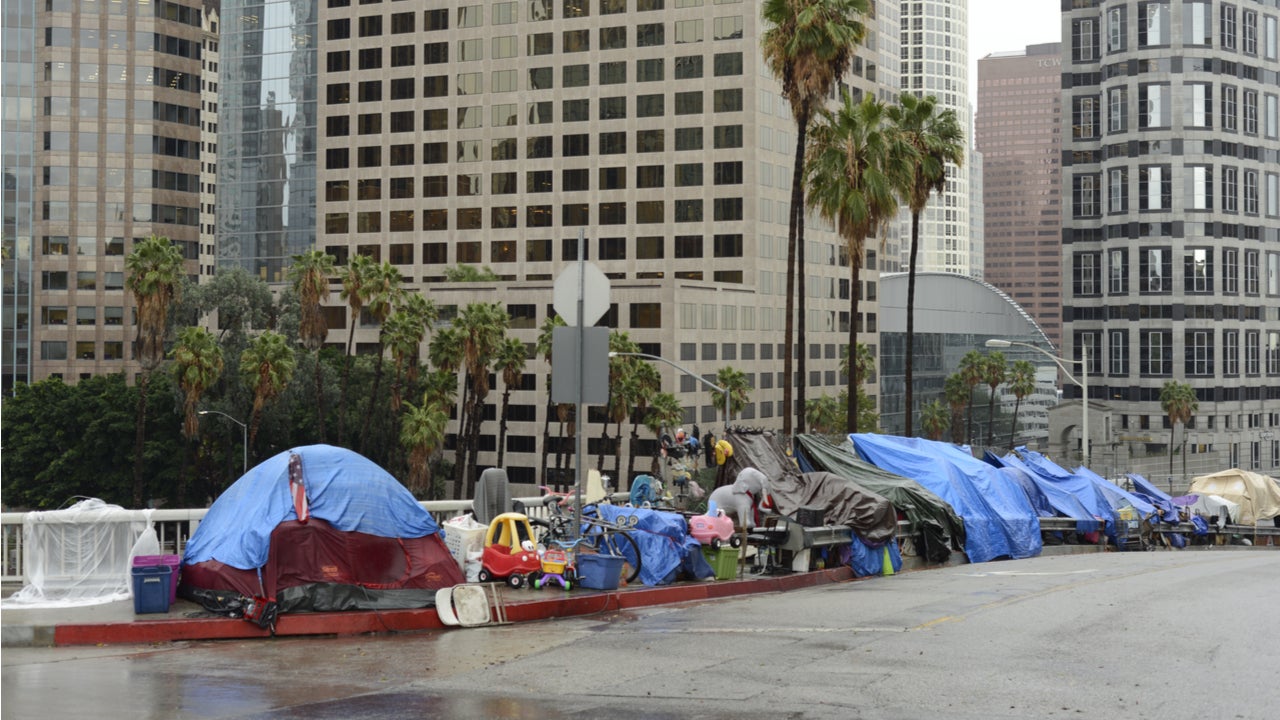
Most cities in the US are left on their own to tackle the Covid-induced recession, with the only alternative to cut budgets. Economists believe that these cuts hit hardest on those least able to absorb them, i.e. the poor and minority households.
Teresa Ghilarducci
Teresa Ghilarducci, a labour economist focusing on retirement security, re-tweeted about how US cities face Covid surges and budget crises due to repeated lockdowns, and also protests as to which sectors should close. According to Bridget Fisher, Director of SCEPA’s Critical Public Finance project, the pandemic has deepened urban income and racial inequalities, with city budgets being limited to deal with these issues.

Discover B2B Marketing That Performs
Combine business intelligence and editorial excellence to reach engaged professionals across 36 leading media platforms.
He further goes on to state that the disease and death rates are much higher among low-income and non-white populations in the US, such as the Latinos in Los Angeles according to data. He also stated that cities are unfairly advantaged in terms of their budget, with some not getting all the economic benefit. As a result, the politics are out of line with the economics.
Cities close or near to New York, Los Angeles or Chicago also politically do not capture the tax benefits that the economy produces, he added. It is therefore, one structural aspect to consider when the budget allocation is going bad. The other aspect is that cities and states have to balance their budgets unlike the federal government.
With revenues of all types being hit by the pandemic, sales taxes, income taxes and property taxes are all slowing down and will be revalued. Therefore, the only saviour here can be the federal government who can run deficits and ensure putting in more money into cities which they are currently not doing, he emphasised.
As cities face COVID surges & protests continue over which sectors should close, our #CriticalPublicFinance Dir. @bridgetcfisher discusses urban #inequality & budgets with Sr. Fellow & economist @rickmcgahey. Watch the latest in our #SCEPAResponds series—https://t.co/DNSaaqj1jQ pic.twitter.com/sp8Vzll4Xh
 GlobalData Strategic Intelligence
GlobalData Strategic IntelligenceUS Tariffs are shifting - will you react or anticipate?
Don’t let policy changes catch you off guard. Stay proactive with real-time data and expert analysis.
By GlobalData— SCEPA (@SCEPA_economics) November 24, 2020
Helmut Reisen
Helmut Reisen, an economist, shared an article on how the French government has assembled an expert commission to pay off the Covid-19 debt mountain. Olivier Dussopt, the Secretary of State to the Ministry of Public Action and Accounts, stated that almost a dozen highly professional officials will be tasked to lay down the post-Covid course for the financially battered country. Among all the high-profile business leaders and economists will be Beatrice Weder di Mauro, a Swiss-Italian who advised Angela Merkel, the German Chancellor.
Emmanuel Macron, the President of France, stated that he wanted to avoid taxes to cover the massive financial aid borrowed to save the economy from the coronavirus crisis, the article noted.
The government has already announced approximately $547bn in subsidies and state-backed loans to support the hard-hit sectors such as airlines, automakers, winemakers and small business owners. It has also covered the large bulk of salaries for employees forced to stay home to limit layoffs.
France’s central bank has predicted a GDP decline by almost 10% this year, depending on how long the Covid restrictions will continue thereby limiting government actions. The President further plans to allow some stores to re-open before the holiday season begins as Covid cases decline, the article highlighted.
Taskforce reduction of public Covid debt: Only economist (apart from INSEE head) selected by #Bercy is Beatrice Weder… https://t.co/YKiNIenEIs
— Helmut Reisen (@HrReisen) November 24, 2020
Megan Greene
Megan Greene, a global economist, re-tweeted an article by Peter Conti-Brown, a Wharton assistant professor, on what’s next for the Treasury-Fed Covid-19 lending facilities. The article noted that the Treasury’s Sceretary Steven Mnuchin’s letter to the Federal Reserve Chair Jerome Powell in November has raised some vital questions after the emergency lending facilities, especially the ones targeted to mid-sized businesses and state and local governments.
Mnuchin’s letter addresses the Treasury’s inability to make new commitments after the December 31 as part of the unified response to the Covid-19 crisis along with the Federal government. He however addressed the need to return the unused funds by the Federal Reserve that can be utilised by the Congress to re-appropriate the $455bn.
Although the Fed is most likely to return the unused funds to the Treasury, it has plenty of options, creativity, and bandwidth to adapt, the author noted. For instance, it can change its theory of emergency lending or completely engage in this lending on its own.
https://twitter.com/economistmeg/status/1331268035672502280



